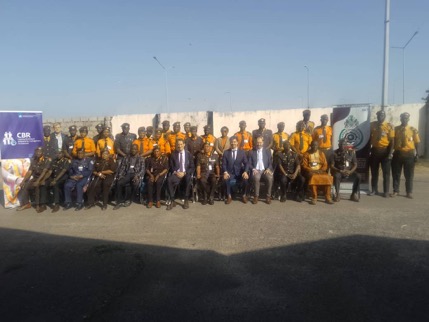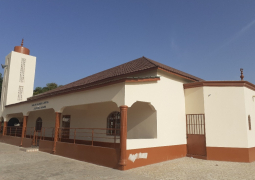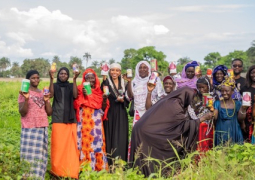
In essence, this initiative is the art of making passengers feel welcome, while enhancing professionalism efficiencies of personnel. It is part of a broader initiative designed to arm participants with in-depth knowledge and skills needed to serve with diligence and openness.
Addressing the gathering, Rogier Hekking, deputy ambassador Netherlands Embassy based in Dakar, Senegal, acknowledged that the two countries have close political and economic cooperation ties, citing large Dutch multinational companies like Damen Shipyards Group that is doing business and sharing expertise in The Gambia’s Maritime and Ports sector.
He also revealed that the Netherlands is also cooperating with the Gambia on international law, fighting injustice and impunity and promoting human rights.
To this end, the Dutch diplomat observed that beyond Dutch projects and initiatives from government, companies and other organisations, the bilateral relations between the two countries have been specially marked by human connections.
This, he said, is even evident at the Banjul International Airport, as the country remains a favorite destination for over 30,000 Dutch tourists annually and home to over 300 Dutch nationals, who are now contributing to country’s economy and societies.
“For most of these people if not all, the welcome they received here at the Banjul International Airport and as GID personnel as their first encounter in the Smiling Coast of Africa, is enormous.”
“So, in that sense, your natural sense of Hostmanship already played a significant role in cementing that human connection between our two countries.”
He thus challenged participants to be eager and ready to learn new insightful experience that would bolster their professional delivery.
Also speaking, Rob Van Bokhoven, director International Affairs, Ministry of Justice and Security in Netherlands, described the initiative as a significant moment in their collective journey in strengthening the bilateral cooperations between the two countries.
The Hostmanship training, he said, is not about acquiring new sets of skills, but about embracing a mindset that places respect, care and dignity in every interaction.
Bokhoven described Hostmanship as the art of making people feel welcome, saying it is a principle that deeply recognises the values of ‘our two organizations.’
He recalled that the initiative started last year and the whole idea seeks to foster and set standard in terms of professional capacity of GID personnel especially those at the Banjul International Airport.
In that light, he encouraged participants to embrace the principle of Hostmanship in their daily work, adding that by doing so, they will not only enrich those they serve, but also inspire others.
Ebrima Mboob, director general of The Gambia Immigration Department, said the initiative marks the third capacity-building exercise on Hostmanship Programme targeting personnel of the Gambia Immigration Department.
“I am particularly pleased to learn that this training cycle encompasses ambassadors identified by the teaching staff, supervisors, the first batch of participants and the certification of ambassadors and supervisors respectively. Additionally, I wish to express deep appreciation to the Kingdom of Netherlands for extending this programme to our newly deployed staff at the airport.”
The gesture, he added, reflects the Dutch government’s unwavering commitment to their shared goals, adding that their efforts align seamlessly with department’s strategic plan, which prioritise capacity building and training as critical components of institutional advancement especially goal 10.
“Since inception of this programme, I am proud to report significant improvements in service delivery and operational efficiency by GID staff of Banjul International Airport.”
“The art of making passengers feel welcome have greatly enhanced our professionalism and bolstered our reputation. This partnership and the training it facilitates are invaluable in our journey towards excellence.”
To that end, GID DG also reported that the department’s first strategic plan 2019-2024 has concluded and they are on the verge of launching a revised plan for 2025-2029.
This, new strategy, he added, underscores their commitment to include human rights and gender equality as additional goals to the ongoing identified 10 goals of GID.
“However, realizing 11 ambitious goals required sustained support particularly in advancing human rights and gender-focused initiatives. We are confident that the Kingdom of Netherlands and its partners will continue to stand by us.”
In view of the complexity of good governance in the security sector reform, GID DG maintained that it is evident that financial resources are indispensable for the successful implementation of those strategic priorities.
To this end, DG Mboob urged participants to embrace the opportunity, engage fully and absorb the knowledge imparted and let this professional training shape their career as immigration officers.
Read Other Articles In National News

Latriya Central Masjid observes 19th Holy Qur’an recitation anniversary
Nov 3, 2023, 12:29 PM




